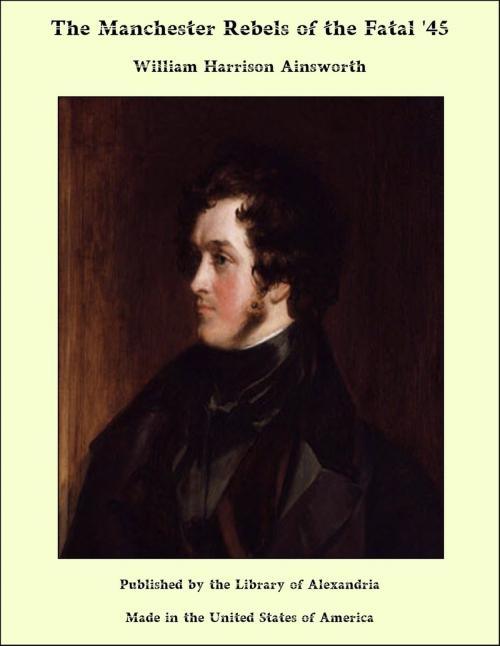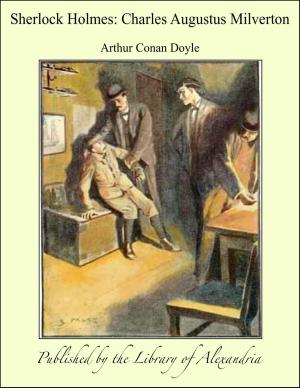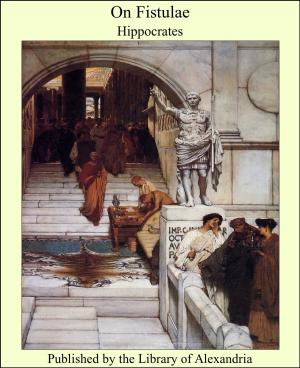The Manchester Rebels of the Fatal '45
Nonfiction, Religion & Spirituality, New Age, History, Fiction & Literature| Author: | William Harrison Ainsworth | ISBN: | 9781465603944 |
| Publisher: | Library of Alexandria | Publication: | March 8, 2015 |
| Imprint: | Language: | English |
| Author: | William Harrison Ainsworth |
| ISBN: | 9781465603944 |
| Publisher: | Library of Alexandria |
| Publication: | March 8, 2015 |
| Imprint: | |
| Language: | English |
About midnight, in the autumn of 1724, two persons cautiously approached an old moated mansion, situated in Cheshire, though close to the borders of Lancashire. The night being almost pitch-dark, very little of the ancient fabric could be distinguished; but the irregular outline of its numerous gables showed that it was of considerable size. It was, in fact, a large picturesque hall, built in the early days of Elizabeth, and was completely surrounded by an unusually broad, deep moat. The moat was crossed by a drawbridge, but this being now raised, access to the mansion could only be obtained by rousing the porter, who slept over the gateway. All the inmates of the house seemed buried in repose. Not a sound was heard. No mastiff barked to give the alarm. A melancholy air had the old hall, even when viewed by daylight. Of late years it had been much neglected, and portions were allowed to go to decay. Several rooms were shut up. Its owner, who died rather more than a year before the date of our story, preferred a town residence, and rarely inhabited the hall. Extravagant, and fond of play, he had cut down the fine timber that ornamented his park to pay his debts. Death, however, put an end to his career before he had quite run through his fortune. He left behind him a wife and an infant son—the latter being heir to the property. As there would be a long minority, the estates, by prudent management, might be completely retrieved. On the demise of her husband, the widow quitted her town house, and took up her abode with her child at the old hall. With a greatly reduced establishment, she lived in perfect seclusion. As she was young, very beautiful, and much admired, people wondered that she could thus tear herself from the world. But her resolution remained unchanged. Her affections seemed centred in her infant son. She had few visitors, declined all invitations, and rarely strayed beyond the limits of the park.
About midnight, in the autumn of 1724, two persons cautiously approached an old moated mansion, situated in Cheshire, though close to the borders of Lancashire. The night being almost pitch-dark, very little of the ancient fabric could be distinguished; but the irregular outline of its numerous gables showed that it was of considerable size. It was, in fact, a large picturesque hall, built in the early days of Elizabeth, and was completely surrounded by an unusually broad, deep moat. The moat was crossed by a drawbridge, but this being now raised, access to the mansion could only be obtained by rousing the porter, who slept over the gateway. All the inmates of the house seemed buried in repose. Not a sound was heard. No mastiff barked to give the alarm. A melancholy air had the old hall, even when viewed by daylight. Of late years it had been much neglected, and portions were allowed to go to decay. Several rooms were shut up. Its owner, who died rather more than a year before the date of our story, preferred a town residence, and rarely inhabited the hall. Extravagant, and fond of play, he had cut down the fine timber that ornamented his park to pay his debts. Death, however, put an end to his career before he had quite run through his fortune. He left behind him a wife and an infant son—the latter being heir to the property. As there would be a long minority, the estates, by prudent management, might be completely retrieved. On the demise of her husband, the widow quitted her town house, and took up her abode with her child at the old hall. With a greatly reduced establishment, she lived in perfect seclusion. As she was young, very beautiful, and much admired, people wondered that she could thus tear herself from the world. But her resolution remained unchanged. Her affections seemed centred in her infant son. She had few visitors, declined all invitations, and rarely strayed beyond the limits of the park.















